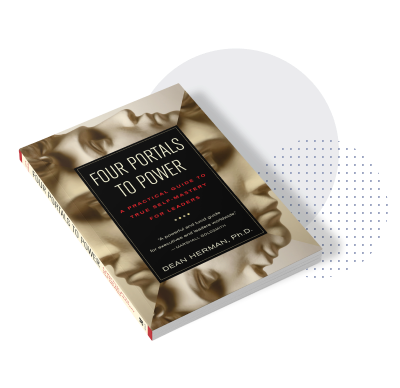Articles
How Much, Really, Do People Trust You?
April 14, 2011 (Number 20) A senior leader was speaking with me recently about one of his colleagues. "You know, Dean," he said, "I just don't trust her." When I asked why, he leaned back in his chair, folded his arms, reflected for a moment and responded, "It's just a gut sense I have."My hearing such things from executives is not uncommon. These leaders must continuously make judgment calls about whom to trust regarding highly sensitive matters. Often, it comes down to an instinctual "gut check."
What do you imagine people might be saying about your own trustworthiness? If your response is, "But I'm honest!," you're not quite getting the picture. Trust, as considered by senior leaders, is more about how you conduct yourself — and especially the motives that can be inferred from your behaviors.
Do you see how your colleagues' musings about that topic can have a major impact on your career? If you're ready to grapple with this fundamentally crucial issue, consider the following:
- Ask yourself, "Do my actions consistently show my primary concern is the good of the group or organization I serve?" To what extent do they show self-interest instead?" For example, are your personal ambitions a bit too apparent? Or when you express your views, are you certain they're always in the service of the larger group — or do they sometimes more reflect your personal agenda? Some degree of self-interest is expected, but when it eclipses others' needs, people will notice and grow wary.
- Also consider what you don't do because of self-interested fears and concerns. For example, do you tell the Chairman or CEO when he's dead wrong — even though you might worry about his reactions? And when you see your job's existence doesn't make sense, do you suggest its elimination? Just how boldly trustworthy are you?
- Finally, consider the extent to which you act on other negative emotions at work. Resentment, for example, is inherently driven by personal needs. Your enacting it, therefore, will undermine others' trust in you.
Your colleagues are continuously watching you and assessing. When you "trust" in yourself, your abilities and the world such that you consistently and adamantly "do the right thing," others will notice. Then they will equally trust in you — and yield to you more power.
Dean Herman


